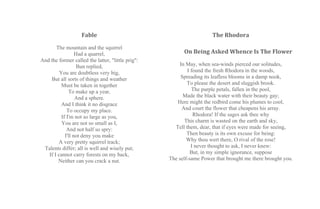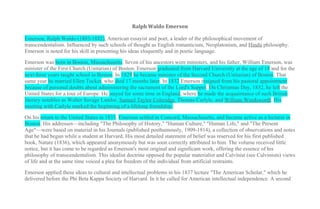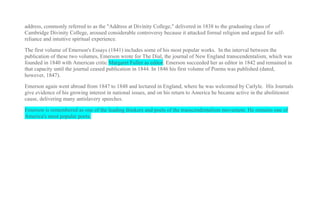Ralph Waldo Emerson was an American essayist, poet, and leader of the transcendentalist movement in the 19th century. He believed that individuals should rely on their intuition rather than traditions or popular opinion. His 1836 book Nature introduced transcendental ideas that opposed materialism and Calvinism. Emerson went on to deliver influential lectures advocating for American intellectual independence and criticizing formal religion. He published two volumes of essays and one of poems that explored transcendental themes of self-reliance and spiritual experience. Emerson was a prolific writer and thinker who played a major role in defining American literature and philosophy.


